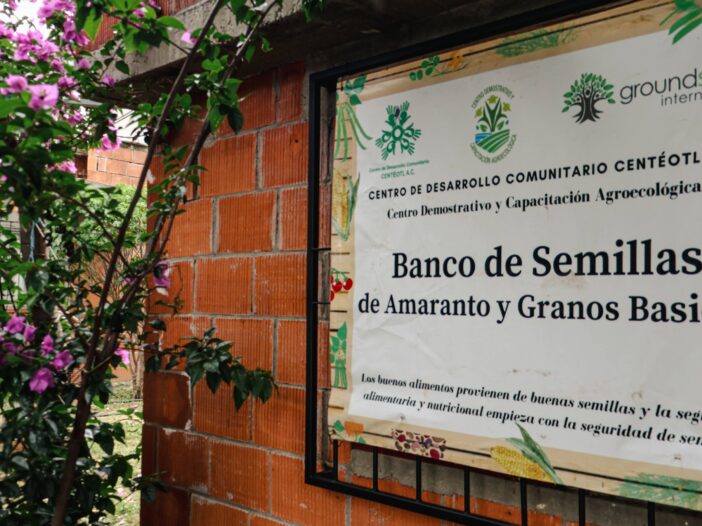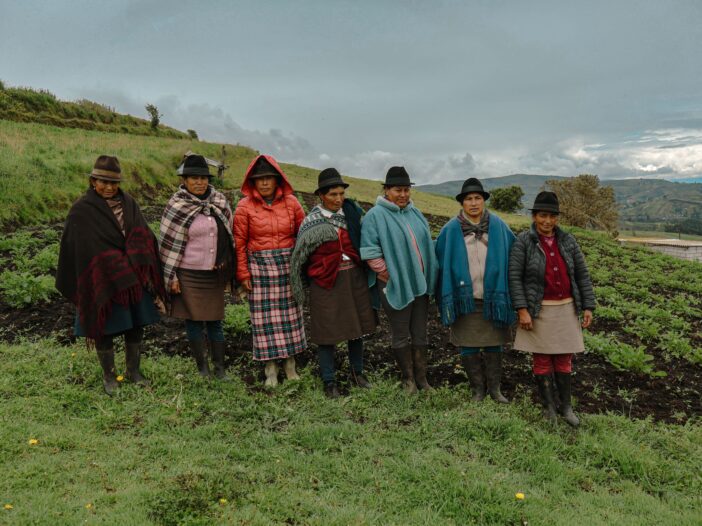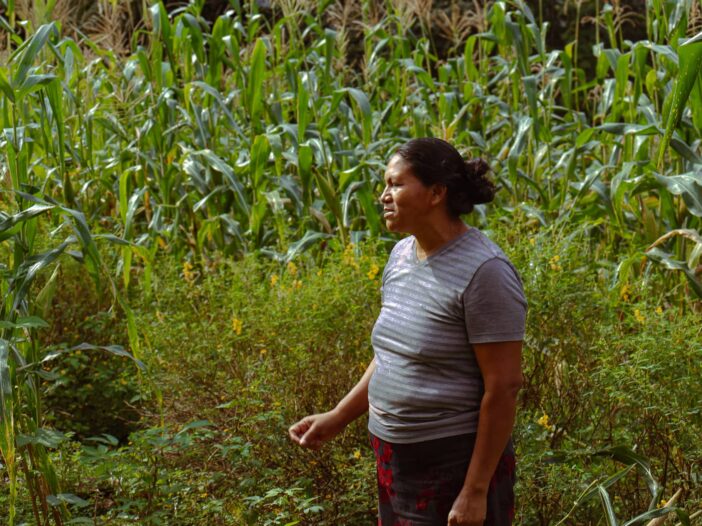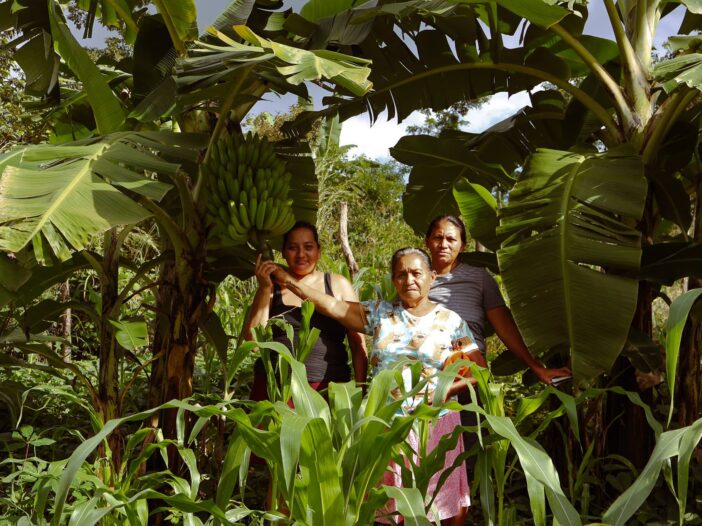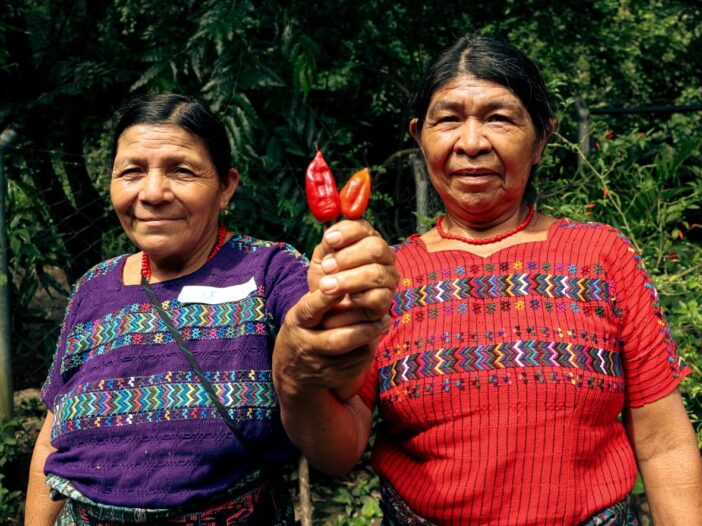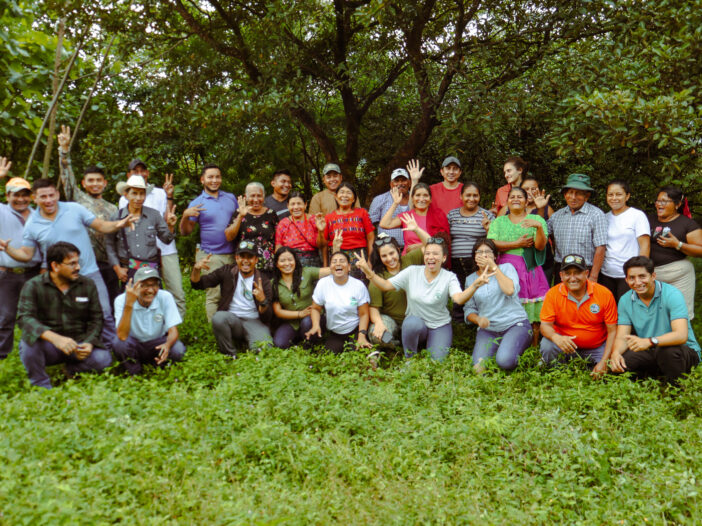In 2024, communities across Haiti, Honduras, Guatemala, Ecuador, and Mexico endured a convergence of crises. Climate extremes collided with social, economic, and political instability, threatening lives and deepening the fragility of rural livelihoods across Latin America and the Caribbean. Climate change is no longer a distant threat but a daily reality. Droughts, floods, heatwaves, and storms are hitting harder and more often. In Honduras, communities endured unprecedented heat in 2024, … [Read more...] about Agroecology Building Community Resilience Amid Climate Crisis in Latin America & the Caribbean
Americas
Saving Andean Potatoes: How Farmers Are Fighting Crop Disease like Punta Morada with Agroecology
By Rebecca Wolff On our recent field visit to the provinces of Cotopaxi and Chimborazo, with our partner EkoRural, potatoes were everywhere — in a steaming bowl of soup at lunch, and flowering across the rolling hillsides in Mulallilo. This was very different to my life back home in Vermont. Potatoes are always a side dish, never the star of a meal, and they are often labeled as just a starchy food. Yet, potatoes are nutritious, high in vitamin C, and the more colorful and pigmented the … [Read more...] about Saving Andean Potatoes: How Farmers Are Fighting Crop Disease like Punta Morada with Agroecology
De parcelas olvidadas a economía colectiva, el modelo de una comunidad de mujeres rurales en Honduras
En la comunidad de Isletas, Concepción de María, Langue, Honduras, Rafaela Godines identificó la necesidad de empoderar a las mujeres rurales y mejorar la soberanía alimentaria de sus familias. “¿Y si trabajamos juntas?” Con esa pregunta inició la formación de un grupo de mujeres que, al unirse, alquilaron una parcela de tierra que antes estaba en desuso. La iniciativa les ha permitido acceder a recursos productivos y fortalecer la cohesión social, además de promoverla reivindicación de la … [Read more...] about De parcelas olvidadas a economía colectiva, el modelo de una comunidad de mujeres rurales en Honduras
From Forgotten Plots to Collective Economy: A Rural Women’s Community Model in Honduras
This article was originally published in Spanish. Read it here. In Isletas, Concepción de María, Honduras, Rafaela Godines recognized the need to empower rural women and improve their families' food sovereignty. "What if we work together?" This question led to the formation of a women’s group that, through collective action, transformed an abandoned plot of land into a thriving ecosystem. The initiative has enabled them to access productive resources, strengthen social cohesion, and … [Read more...] about From Forgotten Plots to Collective Economy: A Rural Women’s Community Model in Honduras
Comunidades de Guatemala y Honduras fortalecen la soberanía alimentaria con reservas estratégicas de granos y bancos de semillas
Durante una semana, representantes de comunidades de Guatemala y Honduras se congregaron en las oficinas de la Asociación de Comités Ecológicos del Sur de Honduras (ACESH) con la intención de compartir saberes sobre almacenamiento de granos, conservación de semillas y estrategias para la soberanía alimentaria. Agricultores, coordinadores comunitarios y técnicos de Qachuu Aloom, Vecinos Honduras, Asociación de Agricultores las Ilusiones del Divisadero (AGRIDIVI) y ACESH intercambiaron … [Read more...] about Comunidades de Guatemala y Honduras fortalecen la soberanía alimentaria con reservas estratégicas de granos y bancos de semillas
Communities Strengthening Food Sovereignty in Central America with Seed Banks and Strategic Grain Reserves
This article was originally published in Spanish. Read it here. For a week, representatives from communities in Guatemala and Honduras gathered at the Association of Ecological Committees of Southern Honduras (ACESH) offices to share knowledge on grain storage, seed conservation, and strategies for food sovereignty. Farmers, community coordinators, and technicians from our partners Qachuu Aloom, Vecinos Honduras, the Association of Farmers Las Ilusiones del Divisadero (AGRIDIVI), and ACESH … [Read more...] about Communities Strengthening Food Sovereignty in Central America with Seed Banks and Strategic Grain Reserves

